
- Homepage
- Finish
- Item Height
- Item Length
- Origin
- Pattern
- Style
- Abstract (23)
- American Directoire (7)
- Art Deco (513)
- Art Deco Style (28)
- Art Nouveau (413)
- Bohemian (7)
- Contemporary (141)
- Decorative (33)
- Mid-century Modern (553)
- Modern (252)
- Murano (8)
- Murano Art Glass (8)
- Murano Glass (18)
- Retro (32)
- Scandinavian Modern (7)
- Space Age (11)
- Tiffany (13)
- Traditional (16)
- Unk (10)
- Victorian (69)
- Other (2099)
Estate Antique Cranberry Glass Swirl Vase Hand Blown Art Glass
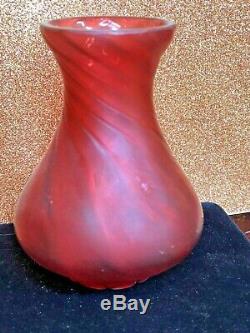
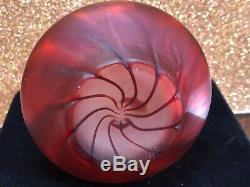
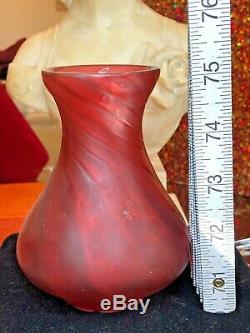
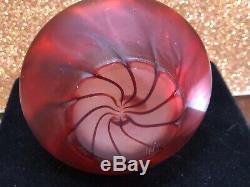
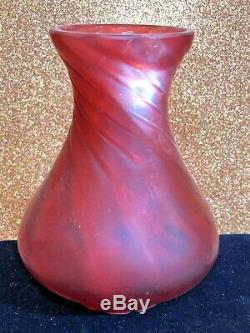
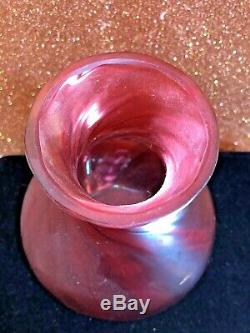
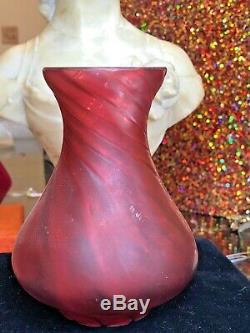
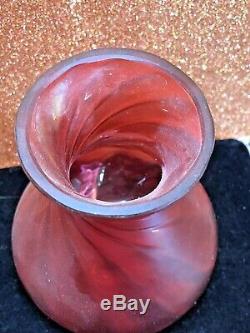
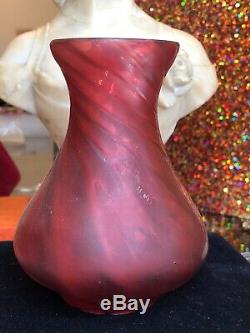
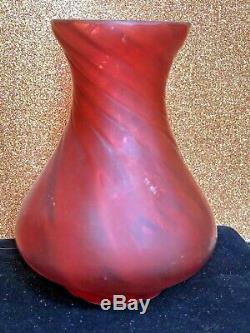
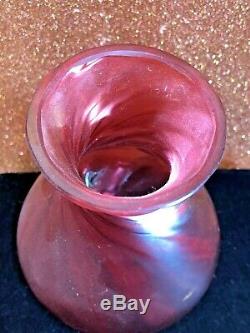
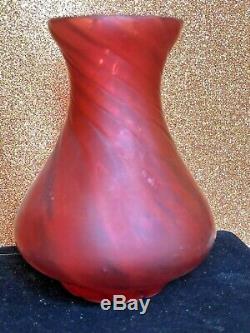


The origins of cranberry glass making are unknown, but many historians believe a form of this glass was first made in the late Roman Empire. This is evidenced by the British Museum's collection Lycurgus Cup, a 4th-century Roman glass cage cup made of a dichroic glass, which shows a different colour depending on whether light is passing through it or reflecting from it; red (gold salts) when lit from behind and green (silver salts) when lit from in front.
The craft was then lost and rediscovered in the 17th century Bohemian period by either Johann Kunckel in Potsdam or by the Florentine glassmaker Antonio Neri in Italy. Neither of them knew the mechanism which yielded the colour, however. Chemist and winner of the 1925 Nobel Prize in Chemistry Richard Adolf Zsigmondy was able to understand and explain that small colloids of gold were responsible for the red colour. The most famous period of cranberry glass production was in 19th century Britain during the Victorian Era. Legend holds that cranberry glass was first discovered when a noble tossed a gold coin into a mixture of molten glass. This legend is almost certainly not true, as the gold must be dissolved in aqua regia before being added to the molten glass. Cranberry glass creations were most popular as a table display, often holding candy or flowers. Cranberry glass was also frequently used for wine glasses, decanters, and finger bowls. Cranberry glass was also well known for its use in "Mary Gregory" glass. This glass had a white enamel fired onto the glass in a design, usually with a romantic theme.The item "ESTATE ANTIQUE CRANBERRY GLASS SWIRL VASE HAND BLOWN ART GLASS" is in sale since Monday, March 23, 2020. This item is in the category "Pottery & Glass\Glass\Art Glass\North American\Other North American Art Glass". The seller is "4744366" and is located in Andover, Massachusetts. This item can be shipped worldwide.
- Style: Victorian
- Original/Reproduction: Antique Original
- Object Type: Vase
- Color: Red
- Glassmaking Technique: Hand Blown
- Type of Glass: Cranberry

